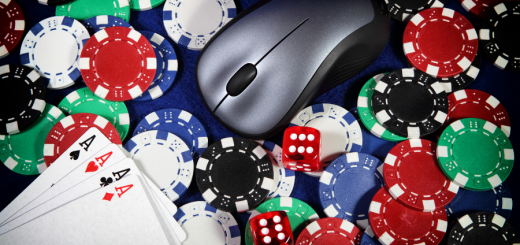How The Brain Deals with Grief

Our brains experience several physical and emotional changes when a loved one dies. A natural part of our bereavement process is that someone who has lost a loved one will experience a range of emotions, including sorrow, grief, depression, guilt, and anger. While sorrow and grief are normal emotions following the loss of a loved one, guilt and anger can indicate other problems that need to be addressed-some people who lose a loved one experience these emotions.
Grief is an inescapable part of life. If we had the time, we could probably spend our whole lives learning to deal with the feelings of loss that go with each stage of life. Even as adults, we grieve the loss of a loved one every day. But how do these emotions affect our brains? And how does the brain deal with grief?
Grief is a very difficult thing to go through. Losing a loved one is very hard to deal with. But what happens when you are grieving over a loss you can’t even identify? You might feel lost and helpless. How can you deal with grief when you don’t know why you’re grieving or where you should go?
Here are the tips.
Coping with loss
While relegating ourselves to tears and wallowing in our sorrow is tempting, it’s not the most constructive way to grieve. Instead, take comfort in knowing that scientific research is beginning to uncover exactly how the brain deals with loss and how to best cope with it.
Honoring the deceased
Grief works in different ways for different people. Sometimes if the deceased do not receive the proper funeral, memorial, and rites, the process of grieving for their loved ones becomes arrested. When we honor the dead, whether it is through extensive eulogies, bespoke Headstones, or grand memorials, we find a way to lay the sum of their lives finally at rest. This can go a long way in helping our brains cope with the grief of losing them.
Dealing with feelings
Dealing with grief can be one of the most difficult human experiences a person will ever face. Following the loss of a loved one, a person can experience an overwhelming range of emotions: sadness, guilt, anger, loss, helplessness, loneliness, and in some cases, even relief. The human brain is not designed to process these types of intense feelings in a brief period of time, which is why grief can often last for months or even years. Some people find it easier to deal with these feelings by having something that serves as a reminder of their beloved. Something that can help them feel their presence in their absence. It could be anything from their favorite perfume scent to something like an ashes diamonds pendant that they can wear close to their heart. No matter how hard things seem right now, remember, our brains are very good at adapting over time.
Building new memories
Until a person has come to terms with the loss, they may not feel ready to move on, but the brain has mechanisms to cope with loss. Building new memories can help a person get through grief. While it is an emotion often associated with death, it’s actually a natural part of the human experience.
Adapting to life without the deceased
Everything starts with the process of adapting and adjusting to life after the death of a loved one. It is a normal and natural experience that many people go through several times throughout their lives. Grief-related symptoms may include sadness or depression, anxiety, changes in appetite, insomnia, fatigue, and guilt. Guilt could be more prominently seen in grieving people who lost their loved ones to suicide since they keep trying to understand how they didn’t detect the suicidal symptoms. It is the guilt of not being there for a friend or family member when they were struggling with depression, anxiety, and suicidal thoughts. Grief-related symptoms can make it very difficult to carry on with the daily activities that make life livable.
Moving forward
Everyone deals with grief in different ways. There are some simple ways to ease into the process of grieving, but even so, it can take a very long time before you get past your initial shock and denial. But an important part of the grieving process is learning to move forward with your life.
Seeking support
Losing someone you love is devastating. And unfortunately, this loss can be compounded by feelings of isolation, confusion, and overwhelming grief. But, as difficult as it may be to grieve, it’s important to remember that you’re not alone. A strong network of support and services can help those who grieve, specifically those who experience more than the typical level of loss. Additionally, you can also get special support and join grief support groups for suicide bereavement in the UK (or elsewhere) if someone close to you took this extreme step. It can help you to share your pain and beat mental health issues like depression and PTSD.
When someone close to you dies, it’s normal to feel a wide range of emotions, including sadness, loneliness, anxiety, and confusion. Some even feel numb or confused and have trouble sleeping, eating, or concentrating. The emotions and feelings of loss and grieving usually last for months or even years, and most people experience them differently. Some feel distressed, while others feel numb or detached.
This is a difficult time for you, so remember to take care of yourself and your mental health. Sleep well, exercise regularly, eat nutritious meals, and ask for support from family and friends. Also, incorporating CBD products into your daily routine may provide a sense of calm and ease the symptoms of grief. CBD products, such as popcorn buds, can help with sleep, stress, and anxiety, as well as provide comfort for grieving individuals.
Some studies show that when grieving over the loss of a loved one, the brain shows reduced activity in a part of the brain that processes emotions. These studies suggest that the emotional part of the brain becomes less active when someone is grieving. However, some studies suggest the brain shows an increased activity after the death of a loved one. Therefore, researchers believe that the brain reacts to grief differently.
The neurobiological and physiological processes involved in both early and late grief are remarkably similar. In general, the faster one moves through grief; the quicker one can recover. The better one takes the next step, the quicker the recovery.



